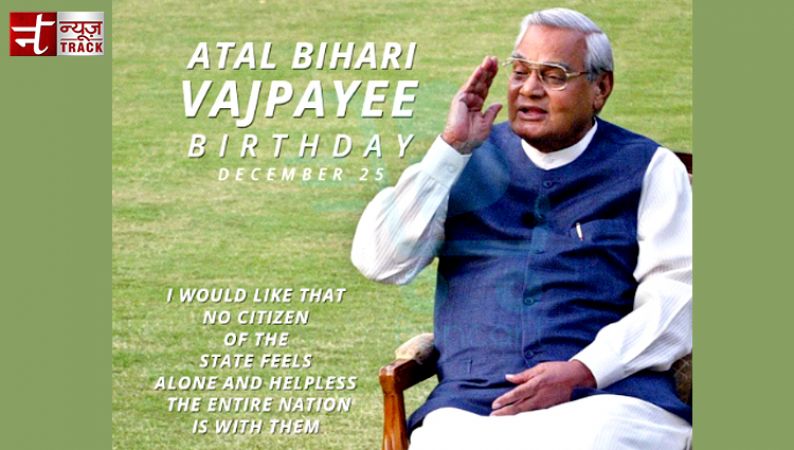
veteran shortest working Prime Minister of India and proud of the Bharatiya Janata Party (BJP), Atal Bihari Vajpayee, is celebrating his 93rd on Monday.A political persona noted for his worthy leadership and contribution to Indian politics, Vajpayee is the only non-Congress leader who functions the nation as the prime minister and completed his full term.As the Bharti Janta Party former turn 93, here is a review of his political journey.
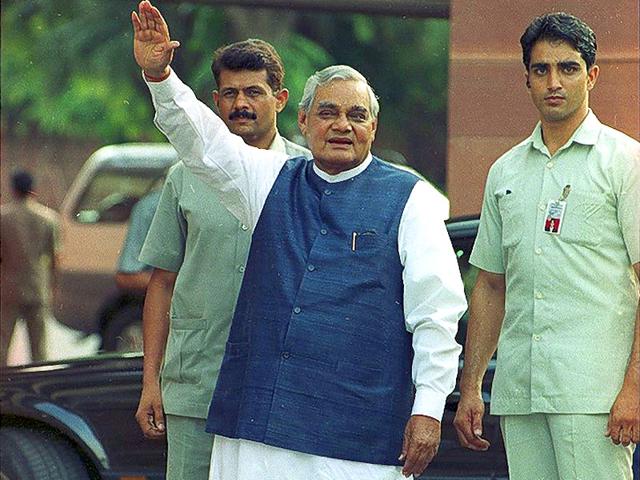
Atal Bihari Vajpayee was born to Krishna Devi and Krishna Bihari Vajpayee on 25 December
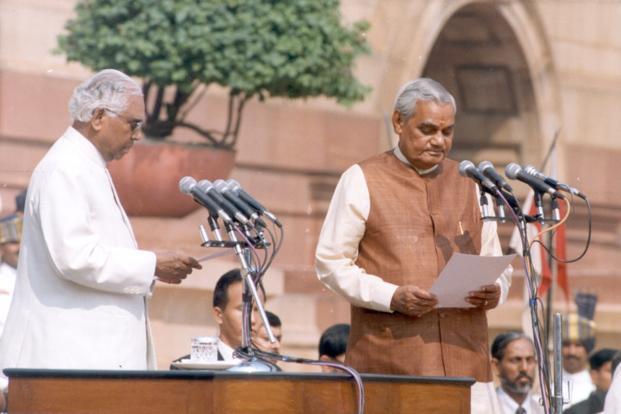
1924, in Gwalior. He completed his school education from Saraswati Shishu Mandir, Gorkhi, Bara, Gwalior and went on to Victoria College now it is known as Laxmi Bai College, where he graduated with distinction in Hindi, English and Sanskrit. He then completed his post-graduation with an M.A. in Political Science from DAV College, Kanpur, and was awarded a first-class degree.
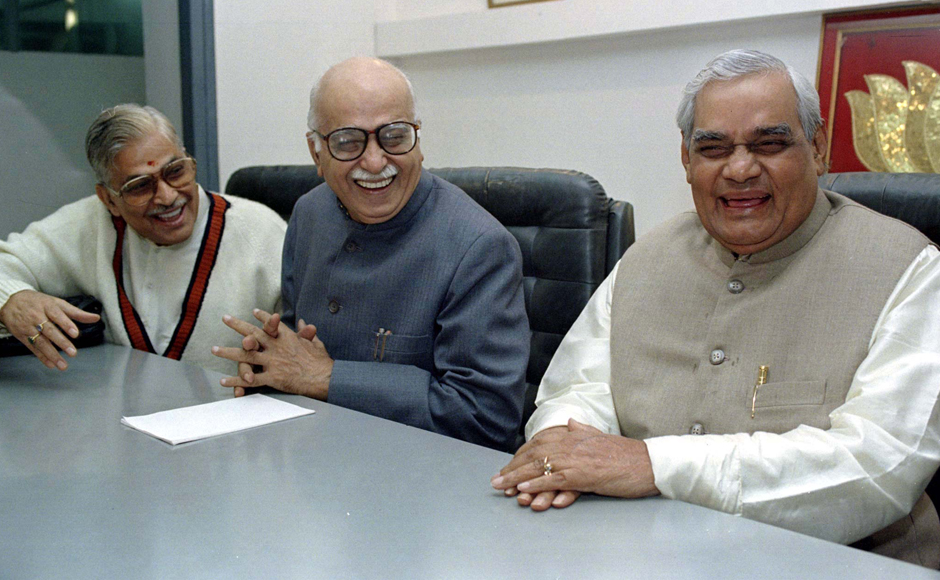
His activism started with Arya Kumar Sabha of Gwalior, the youth wing of the Arya Samaj, of which he became the General Secretary in 1944. He also joined the Rashtriya Swayamsevak Sangh (RSS) as a swayamsevak in 1939.
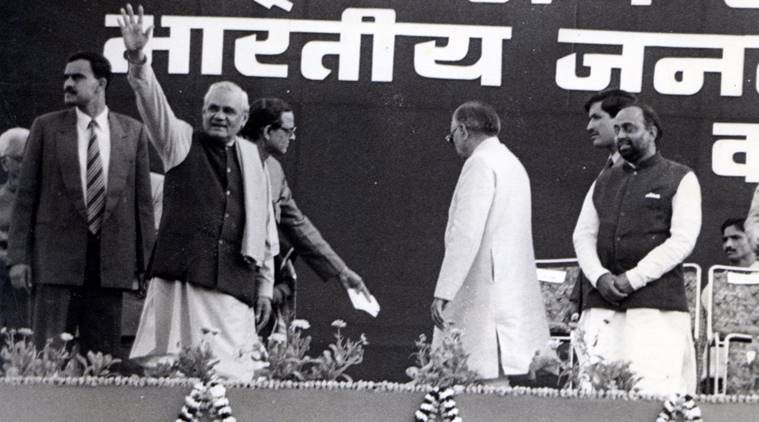
Atal Bihari Vajpayee quit his studying of law because of the partition riots, and was sent as a vistarak (provisional pracharak) to Uttar Pradesh and rapidly began working for the newspapers of Deendayal Upadhyaya, Rashtradharma (Monthly news paper, Panchjanya (a Hindi weekly) and the dailies Swadesh and Veer Arjun.
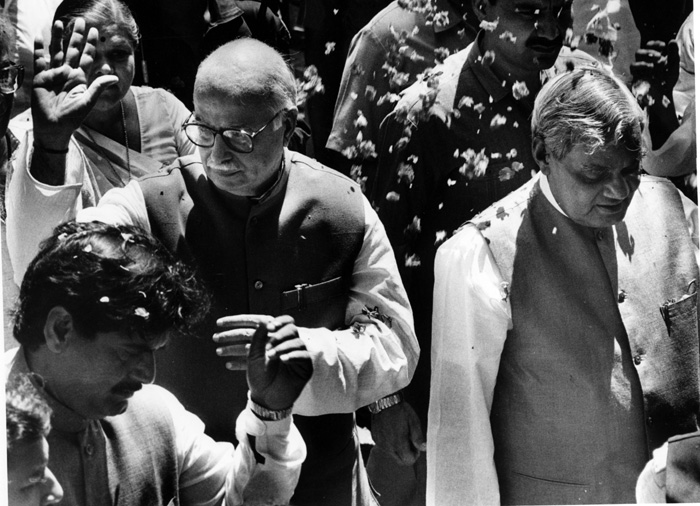
Atal Bihari Vajpayee first vista to politics was in August 1942, when he and his elder brother Prem were deatained for 23 days during the Quit India Movement, when he was released only after giving a written undertaking, expressly declaring not to participate in any of the anti-British struggle.
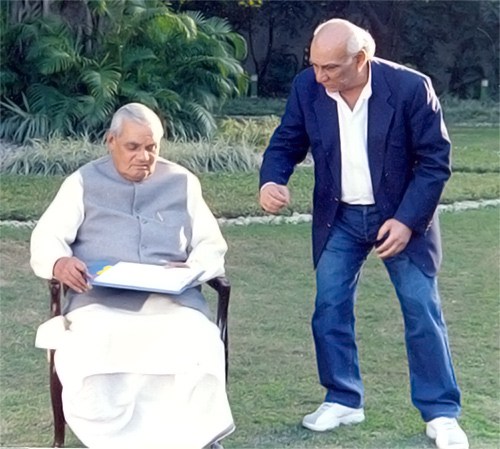
Atal Bihari Vajpayee in 1951,was forward by the RSS, along with Deendayal Upadhyaya, to work for the newly appointed Bharatiya Jana Sangh, a Hindu right-wing political party connected with the RSS. He was appointed as a national secretary of the party in charge of the Northern region, based in Delhi. He soon became a follower and aide of party leader Syama Prasad Mukherjee.In 1954, Atal Bihari Vajpayee was with Mookerjee when he went on a fast-unto-death in Kashmir to protest against perceived humble care of non-Kashmiri Indian traveler to the state. Mookerjee died in prison during this strike.After the death of Deendayal Upadhyaya, the symbol of the leadership of Jana Sangh fell on the shoulders of a young Vajpayee, who became the national president in 1968 and, along with Nanaji Deshmukh, Balraj Madhok and L. K. Advani, led the Jana Sangh to national prominence.
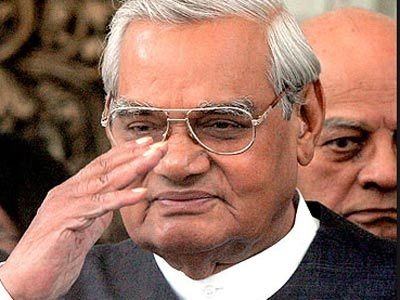
From 1975 to 1977, Atal Bihari Vajpayee was detained along with several other opponent bodies during the Internal Emergency obligatory by then Prime Minister Indira Gandhi of the Indian National Congress party. In 1977, going the call of social reformist Jayaprakash Narayan for all the oppositeness parties to unite against the Congress, Vajpayee integrated the Jana Sangh into the recently formed grand-alliance, the Janata Party.
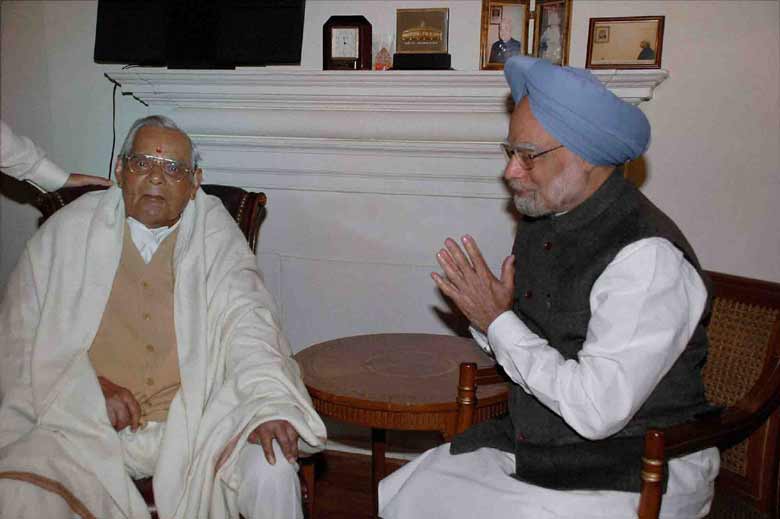
Following Janata's victory in the 1977 general elections, he became the Minister of External Affairs in Prime Minister Morarji Desai's cabinet.By the time the Bharti Janata Party government break down in 1979, Atal Bihari Vajpayee had planted himself as an experienced statesman and a respected political leader. Even so, the Janata Party was dissolved soon after Morarji Desai resigned as Prime Minister in 1979.A parliamentarian for over four time period, Vajpayee has been appointed to the Lok Sabha (the lower house of Parliament of India) ten times, and twice to the Rajya Sabha (upper house). He also worked as the Member of Parliament for Lucknow, Uttar Pradesh, until 2009, when he emeritus from active politics due to health concerns.On 25 December 2014, the office of the President of India announced the Bharat Ratna award, India's highest civilian honour, to Vajpayee. In a specific movement, the President of India presented Bharat Ratna to Atal Bihari Vajpayee in his residency on 27 March 2015.
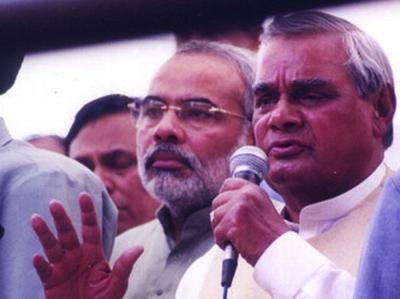
Furthermore, the Centre under the leadership of Prime Minister Narendra Modi in 2014 announced that Vajpayee's birthday would be celebrated as Good Governance Day annually.
Speech given in the Lok Sabha about Padmavati from Atal Bihari Vajpayee's - must watch